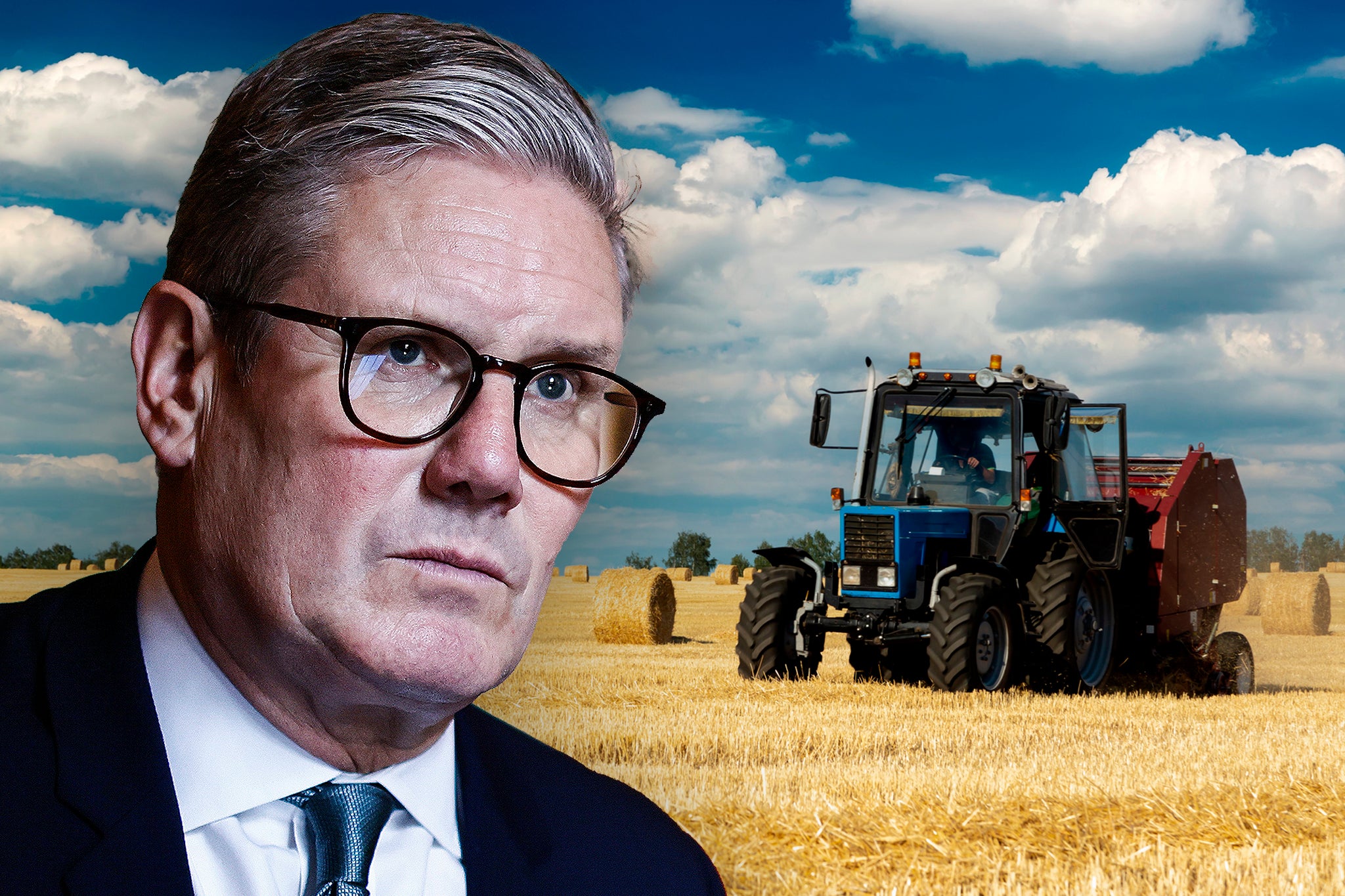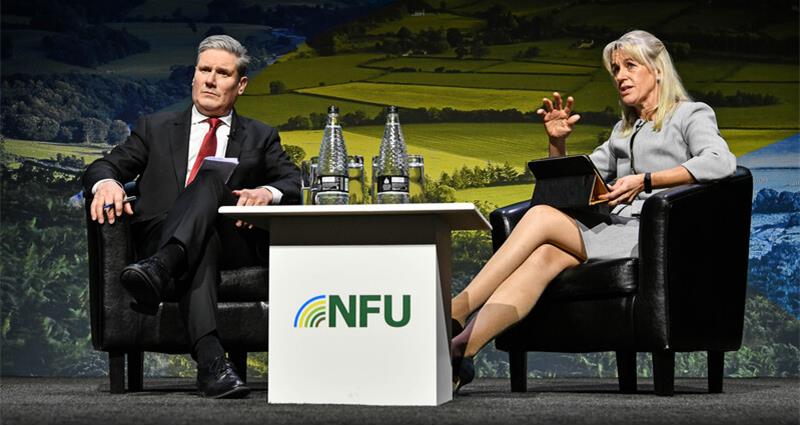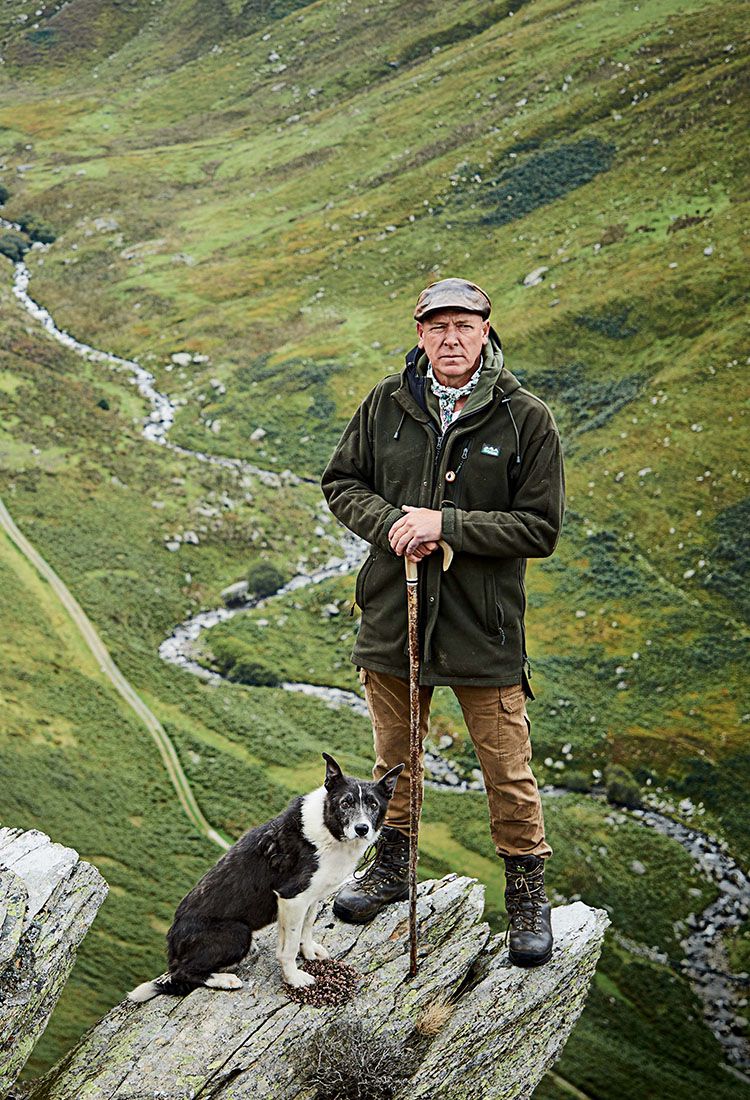Starmer accused of lying to farmers with surprise Budget ‘tractor tax’ set to destroy family farms
Critics attack the government’s decision to extend inheritance tax to family farms

Sir Keir Starmer has been accused of lying to farmers about wanting “a new relationship” with them after the Budget extended inheritance tax to family farms for the first time in history.
The move means farms worth more than £1m are now subject to 20 per cent inheritance tax.
Already the tax is being dubbed the “tractor tax” or the “Old McDonald tax” in some quarters and has been exacerbated by other measures in the Budget which have piled on costs for farming with no extra support from subsidies.
Farmers were already struggling because Brexit had brought an end to the Common Agricultural Policy (CAP) and the new UK subsidy policies were not working.
Now they are having to take on the 6.7 per cent increase in the minimum wage and 15 per cent rise in employer national insurance contributions.

The row has been fueled by memories of Sir Keir’s 2023 speech to the National Farmers Union (NFU) when he pledged to have “a new relationship with the countryside and farmers”.
He promised to provide “certainty” and “work with farmers”, insisting that he agreed “food security is national security”.
On the back of him wooing rural Britain, Labour beat the Tories into second place for rural seats in the election this year, winning 114 which are now vulnerable again.
Baroness Batters, the former president of the NFU who introduced Sir Keir at the conference last year, said that she was still to hear a strategy from the prime minister on how he would deliver.
After Sir Keir promised transparency and to work with the farming community last year, she noted: “The [inheritance tax decision] is causing a massive shock, especially the lack of consultation and lack of an impact assessment.”

Sir Keir claimed to be concerned that “each day brings a new existential risk to British farming. He added: “Losing a farm is not like losing any other business, it can’t come back.”
Baroness Batters noted that the £1m threshold will easily be reached when land value is added to the value of machinery and buildings on farms, meaning most family farms will be subject to the new tax.
She said: “There was already a challenge in farming because of the move away from CAP and the new subsidy system not really working.
“The problem is that farmers are asset rich but cash poor. So this will have an impact.”
Farmers are down to the bone and gristle, who is going to carry these costs?
Her successor Tom Bradshaw described the new tax as “disastrous”.
He said: “This Budget not only threatens family farms but will also make producing food more expensive. This means more cost for farmers who simply cannot absorb it, and it will have to be borne by someone. Farmers are down to the bone and gristle, who is going to carry these costs?
“It’s been a bad Budget for farm confidence, which is already at an all-time low. After today farmers, including tenants, have more uncertainty and more worry, not less.”
Gareth Wyn Jones, a farmer in North Wales, told The Independent: “We were lied to by Keir Starmer. There is no doubt.
“The vast majority of farms in this country are family farms and now they are going to be broken up or people will not be able to afford to stay in farming.”

His family, who have owned the farm for 375 years, could soon face the problem with his father aged 88 and uncle aged 90.
He said: “I suspect I will be the last generation to farm this land from my family now.”
Mr Wyn Jones added: “People don’t realise that most farmers effectively work well below the minimum wage because of the hours we put in. Plenty are already struggling. I don’t want to say what I think of this Budget too much because there will need to be a lot of bleeps.”
He added: “They said no tax rises on working people. Well farmers are working people.”
Tim Bonner, chief executive of the Countryside Alliance, set up to protect rural communities from the impact of Tony Blair’s Labour government, warned that the new tax could destroy rural England.
“Farmers are iconic to people’s view of Britain,” he said. “There are only 10,000 fishermen but they had a seismic impact on the Brexit debate and this could be even bigger.”
Property expert Kirstie Allsopp said the decision threatened great estates, writing on X, formerly known as Twitter: “Rachel Reeves has f****d all farmers, she has destroyed their ability to pass farms on to their children, and broken the future of all our great estates.
“It is an appalling decision which shows the government has zero understanding of what matters to rural voters.”
Clarkson’s Farm presenter Jeremy Clarkson urged farmers to “hang on in there” in a post on X.
He wrote: “Farmers. I know that you have been shafted today. But please don’t despair. Just look after yourselves for five short years and this shower will be gone.”
Sir Ed Davey, leader of the Liberal Democrats, said his party would “absolutely” reverse the policy if they were in power.
Speaking to journalists at the press gallery lunch in parliament, Sir Ed said the policy “shows a huge lack of understanding of rural communities and farmers”.
He warned that “farmers are struggling” in the wake of Brexit and years of volatile weather conditions, describing the past few years as having already been a “rough run” for British farms.
“Farms tend to go down generation to generation. It’s how they work and it’s really important.
“Fifty per cent of farms are worth at least £1.5m, so it’s more than one or two farms. Just think of the impact that’s going to have on communities”, he added.
The Independent has approached the Treasury for comment.
Join our commenting forum
Join thought-provoking conversations, follow other Independent readers and see their replies
Comments
Bookmark popover
Removed from bookmarks